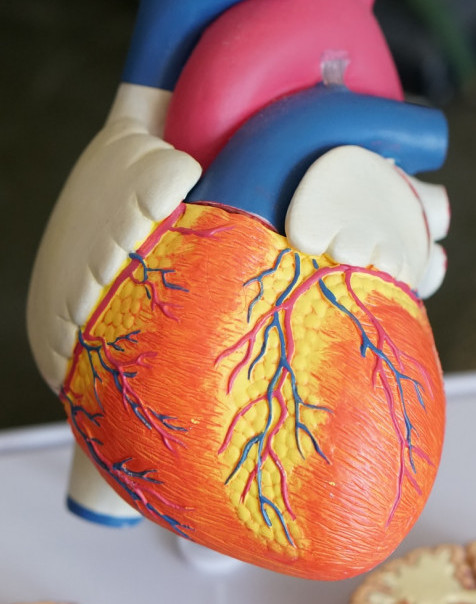In this article, I would like to look at how to improve your heart health. It is never too early to look at ways to support your heart as this aspect of our bodies definitely gets more vulnerable as we age.
How To Improve Your Heart Health
 The heart is one of our most vital organs, as without it we wouldn’t survive.
The heart is one of our most vital organs, as without it we wouldn’t survive.
Therefore it is important to know how to improve your heart health by taking care of your heart.
Here are some easy ways to incorporate a healthy heart into your daily routine.
Reduce The Number Of Stress Hormones Released
Unfortunately, it has been proven that stress is a major contributor to heart disease.
The production and subsequent release of stress hormones such as cortisol, or the hormones that are released during “fight or flight” response such epinephrine, adrenaline, and norepinephrine, are an inevitable and natural process during existence.
However, if you live an overly stressful life that lacks in adequate amounts of rest and relaxation, you will put an unsustainable amount of strain on your cardiovascular system which will in time have potentially fatal negative repercussions on your heart.
Incorporating any type of relaxing activity such as meditation, massage therapy, yoga, acupuncture, aromatherapy, or any other form of alternative medicine and relaxation therapy techniques into your daily routine will do wonders for your heart health, not to mention the impact that such practices will have on your overall happiness.
Stay Active
Exercising regularly is essential for heart health. Falling into the rut of living a consistently sedentary lifestyle is one of the worst ways to insult your heart and compromise your heart’s health.
This is not to say that you need to run marathons or be a regular at the gym but making it a point to simply walk or jog for 20 minutes or so a few days per week will make a big difference in your cardiovascular well-being.
Other small changes will also help like opting to take the stairs versus the elevator or choosing to park further away from the entrance of stores when running errands, are both simple, yet effective examples of ways in which to incorporate more physical exercise into your everyday life.
Exercise also triggers the release of endorphins, so not only will your heart be happier, but your mind will as well.
Don’t Smoke
Having a healthy heart and smoking do not go together, so don’t do it.
Quit smoking for a healthier younger you.
Adopt A Heart Healthy Diet
The Mayo Clinic advises you to make a genuine and concerted effort toward incorporating healthy foods that are rich in mono and polyunsaturated fats, essential fatty acids (Omega 3 – 6 – 9), and antioxidants into your regular diet.
Contrary to what many people think, a heart-healthy diet is not necessarily synonymous with bland, tasteless, or dull foods.
There are a lot of delicious foods varying from avocadoes to dark chocolate that are rich in the substances that promote heart health and can be prepared in ways that protect your cardiovascular system while also satisfying your taste buds.
Try not to overeat, especially with the festive season coming up as overeating results in the blood shifting from the heart to the digestive system and overeating can also cause the heart to beat faster and/or irregularly.
If you are overweight, this just puts even more strain on your heart, so do your best to stay within a healthy weight range.
Avoid Polluted Air
Depending on where you live, avoiding polluted air may be far easier said than done, however, pollutant particles tend to be at their highest concentration levels early in the morning.
So if you live in a busy city like Los Angeles, CA, or Johannesburg plan your outdoor activities for the afternoon and evening, since multiple studies have revealed a correlation between inhaling pollutants and arterial damage in the heart, as well as elsewhere in your body.
Get Enough Good Quality Sleep
There is a lot of documented evidence linking the amount, the timing, and the quality of your sleep with heart health. Some studies have shown that those who suffer from sleep disorders such as insomnia have almost a 50% higher chance of developing some form of cardiovascular disease than those who are able to get an average of 8 hours of quality, restful sleep at a time.
Alternatively, sleeping over 9 hours a night on a regular basis can be damaging to your heart’s health as you could get secondary conditions such as depression or obesity.
If you have any other suggestions on how to improve your heart health, please don’t hesitate to comment below.


